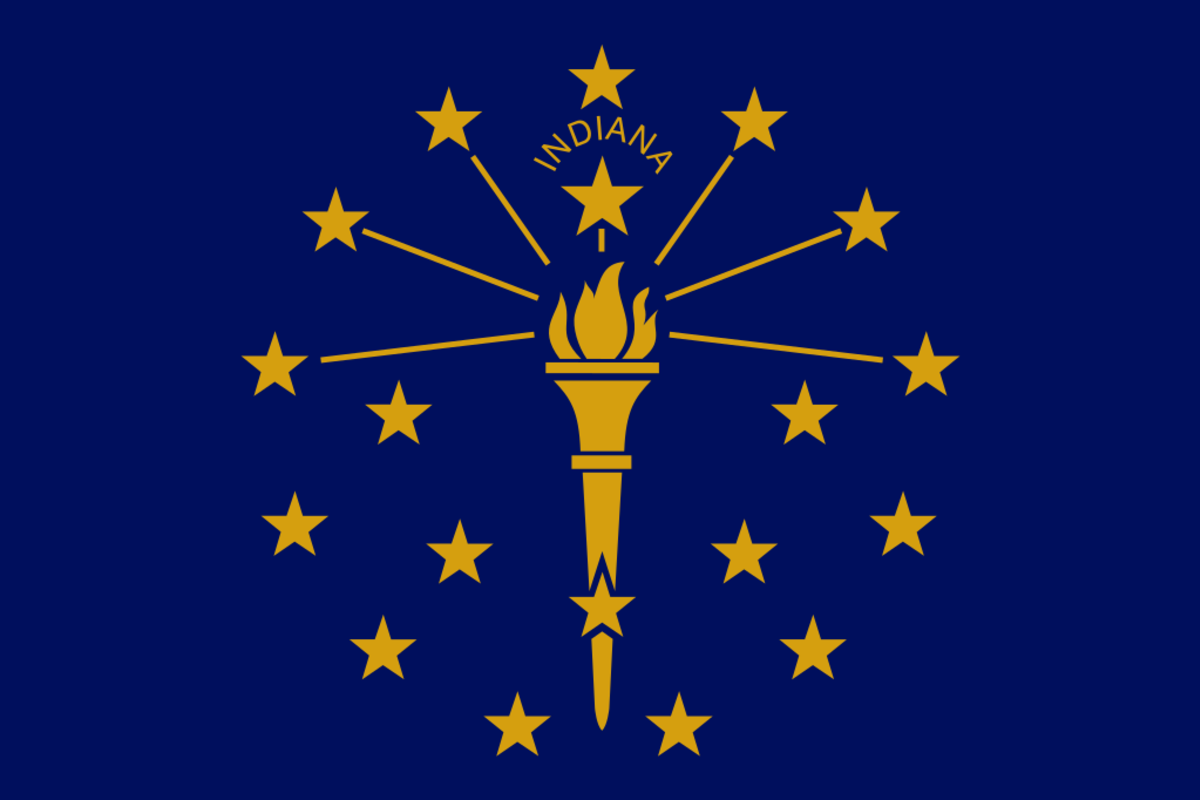Indiana Workers’ Compensation Laws

Many Hoosiers are employed in the top three industries: manufacturing, healthcare and social services, and retail, according to the Indiana Department of Workforce Development. Small businesses also make up around 500,000 businesses in the state, employing 44% of the overall workforce.
Indiana residents’ penchant for commerce has been rewarded, as Indiana was ranked by the Small Business and Entrepreneurship Council as one of the most entrepreneur-friendly states in 2019.
However, the Indianapolis Business Journal reports that small business owners in the state face several challenges in the current year.
Some of these include the increasing prices of commodities, hiring and keeping labor, and the proposed gig worker rule, which can affect both small and large employers alike.
Because of these challenges, businesses need to have various financial protections in place. One of these is workers’ compensation insurance, which can help mitigate a liability catastrophe in cases of workplace injuries.
Employers would be delighted to know that Indiana has one of the lowest workers’ comp insurance costs in the country. This is according to the National Academy of Social Insurance’s report released in 2022.
On the other hand, employees should also understand the financial impact of being injured on the job. According to the National Council on Compensation Insurance, the average cost of an injury claim from 2019 to 2020 was $41,353. Car accidents cost more at $85,311, while burns and slips and falls were at $54,173 and $48,575, respectively.
It is indeed costly to get injured. Learn more below about how workers’ compensation works and what to expect from the process.
https://www.ibj.com/articles/small-businesses-to-tackle-long-list-of-challenges-in-2023
https://www.insureon.com/blog/compare-workers-comp-rates-by-state
Indiana Workers’ Compensation Insurance Requirements
Employers in Indiana are required to secure workers’ compensation insurance where employment is involved. This applies regardless of the number of employees and the number of hours worked, whether full-time or part-time.
Having this coverage helps employers get financial protection from the liabilities of their employees’ workplace-related injuries and illnesses.
In most cases, the employment services are rendered by a resident of the state. However, the Workers’ Compensation Act may also govern out-of-state injuries for employees with Indiana employment terms.
Certain types of employees are exempt from the coverage:
Railroad workers.
Municipal firefighters or police personnel.
Agricultural laborers.
Volunteers.
The Worker’s Compensation Board, or the Board as referred to throughout this article, administers laws under the Act.
How Can Employers Get Workers’ Compensation Insurance?
Private insurance companies in Indiana offer workers’ comp coverage. Employers who have difficulty being insured through such a method can seek assistance from the Indiana Compensation Rating Bureau.
Large employers can choose to self-insure and must apply to the Board to do so.
Independent contractors, as defined by IRS, need not carry workers’ compensation insurance. However, they must secure an Independent Contractors Exception Certificate from the Board.
The same rule also applies to sole proprietors, firm partners, and LLC managers. The Board has posted a step-by-step guide on how to obtain this certificate.
Any person or entity that contracts non-home-related work or jobs exceeding $1,000 in value can be liable for the contractor’s injuries. They must ensure that the contractor they hire has proper workers’ compensation insurance or the previously mentioned documentation.
On the other hand, an employee with a disability who develops another injury must be compensated by the employer, just as there was no previous disability. Insurers and self-insured employers must participate in the Second Injury Fund.
Occupational Disease Act
The Occupational Disease Act offers protection specifically to workers who contract job-related illnesses. For this law to be applicable, there must be a direct causal link between the disease and the job condition, such that the exposure caused the worker’s disease.
The employer liable for compensation is the last one the employee worked for. The liability is different for silicosis and asbestosis cases. For such diseases, the last employment where the worker was exposed to the hazard for 60 days or more becomes the one liable.
Under this law, the worker must apply to the Board for compensation within two years after being too ill to work. In cases of death, the two-year deadline applies after the worker’s death.
Penalties for noncompliance
The Board may charge employers who don't have workers' compensation insurance with a Class A infraction and order them to:
Pay a fine of up to $10,000.
Provide compensation up to twice the amount stipulated in the statutes.
Shoulder the legal fees and medical expenses.
Cease business in the state unless insurance is secured.
Employers found to have violated any of the various requirements under workers’ compensation laws will face civil penalties as follows:
In addition, failure to report an injury can lead to a bad faith judgment that may be punishable by up to $20,000 in fines.
Indiana Workers’ Compensation Benefits
Employees are covered by workers’ comp insurance from day one of employment. They can use the Board’s online verification tool to quickly confirm the insurance coverage of their employer.
The following table summarizes the benefits employees can recover when they get injured on the job:
Temporary vs. Permanent Disability
Cap on Overall Workers’ Compensation Benefits
In Indiana, there is a limit on the total benefit amount an employee can recover, with the exception of medical benefits. Compensation for lifetime medical treatment can be awarded when necessary. The total benefit amount changes each year. Currently, the cap is $402,000 until July 1, 2024.
In cases of bad faith lawsuits, an employee who prevails may be awarded compensation by the Board. This compensation can range from $500 to $20,000 and can also cover the employee's legal fees.
Can an Employer or Third Party Be Sued for Workplace Injuries?
In most cases, the injured employee can no longer sue an employer under workers’ compensation laws. However, provisions in these laws declare the said rule null and void when the case is against public policy, such as in negligence cases.
If a third party other than the employer is liable for the injury, the same provisions will also apply. Because of this, the injured are advised to seek the advice of a workers’ compensation or personal injury lawyer in their area.
How to File a Workers’ Comp Claim in Indiana
Both the employer and the employee must promptly fulfill their share of reporting responsibilities. The next section outlines the important actions they must take so the claim process can proceed without a hitch. Taking note of the different deadlines is also advised.
When Is the Deadline for Workers’ Compensation Claims in Indiana?
The injured worker must bring a workers’ compensation claim within two years after the injury. For fatal cases, the two-year deadline starts to run after the worker passes away.
A Step-By-Step Guide on Filing a Workers’ Compensation Claim in Indiana
The following sections are the basic steps in the claim procedure. Eventually, the process would depend on the complexity of the case. All the necessary forms mentioned can be downloaded from the Forms page of the Workers’ Compensation Board website.
1. Seek medical treatment immediately
Your health should be the first priority. Go to a medical provider as soon as possible. Remember, you must go to an employer-authorized provider, except in emergency situations. You may not be covered if you go to your own doctor.
Tell the provider that you have a work-related case, and be sure to check that this is indicated in various medical documentation.
2. Inform your employer
Speak to your employer about your condition and submit a written notice within 30 days after the injury happened.
Ensure that your employer makes a written report of the injury for the insurance company. Protect your claim by making sure you have proof your employer received your notice.
3. Check if your employer made a report
Your employer must electronically file the First Report of Injury or Form 34401. This has to be done within seven days following the injury. If the employer has not done so yet, ask what the cause of the delay is.
4. Consult an attorney or the Ombudsman Division of the Workers’ Compensation Board
If you encounter problems, an attorney can advise you of your legal options. Weigh the pros and cons of hiring a lawyer through the Board’s Plantiff-Representation-Attorney Guide.
For non-legal-related guidance, contact the Workers’ Compensation Board’s Ombudsman Division by completing a Request for Assistance or Form 45442.
5. Follow the doctor’s orders
Always keep in mind that refusal to follow the doctor’s care plan can result in the suspension or termination of your benefits.
Should you believe you are not receiving proper medical care, you can ask the Board for relief. Use the Application for Adjustment of Claim or Form 29109.
6. Be on the lookout for your claim
Expect an investigator to review the specifics of your case once the insurance company has processed your claim.
The insurance company may also ask you to go to their own doctor for an independent medical evaluation. Failing to do so may forfeit your benefits. Note that insurers usually have 29 days to deny or accept a claim.
7. Keep in touch with your employer
As a courtesy gesture, let your employer know of your progress and what the doctor has said about returning to work. Try not to feel pressured to return to work if you feel you have not fully recovered yet.
What Should One Do If a Workers’ Compensation Claim in Indiana Has Been Denied?
Knowing what to do if the insurance company or your employer denies your claim is essential. You can also follow a similar process if you think you did not receive full or proper benefits.
Details of disputed claims can be found using the Board’s Online Search Tool.
1. Ask why the claim was denied
Before discussing with the insurer or self-insured employer why the claim was denied, be sure you have talked the matter out with a lawyer. This is equally important if you are asked to sign a medical release agreement.
2. Request the Board for formal or informal assistance
The Ombudsman Division can informally assist you with resolving disputes. Mediation can also be an option. Disputing parties may utilize the Board’s mediation services or choose their own from a list of court-approved mediators.
If this does not help, you can submit an Application for Adjustment of Claim or Form 29109 for a formal hearing request.
3. Go for a full board review
When you do not agree with the previous method to resolve the issue, ask for a full board review. To do so, submit the Application for Review by Full Board or Form 1042 within 30 days after receiving judgment during the single hearing.
4. Bring the case to court
If, at this point, nothing works, the case can be taken to the Indiana Court of Appeals first and then to the Indiana Supreme Court.
What To Expect When Returning to Work
Workers’ compensation claims in the state are medically driven. It means your claim will be closed once you have been fully compensated and the doctor greenlights your return to work.
This is usually a straightforward process if your injuries are minor and do not have lingering effects. But if you have serious injuries, the process may be complicated.
Maximum Medical Improvement
The period of your recovery is called, in legalese, maximum medical improvement, or MMI. It can also describe the period when no amount of treatment will further improve your condition, such as in serious injuries.
Once an MMI is issued, it will trigger different events, depending on your case.
You can get back to work and stop receiving benefits. If you have been placed on light duty, which may reduce your earnings, you can concurrently receive benefits.
You can dispute the doctor’s MMI decision by requesting an independent medical exam with the Board. Use Form 38911 or Report of Temporary Total Disability (TTD)/Temporary Partial Disability (TPD) Termination.
Permanent Partial Impairmen
PPI, or permanent partial impairment, is a rating describing the percentage of the body that has been permanently damaged due to the injury.
Most of the time, this is the deciding factor as to how much the value of your claim is. A low rating indicates lower impairment and, subsequently, lower compensation.
After the doctor issues the PPI rating, the insurance company will send you the Agreement to Compensation or Form 1043. This refers to the form documenting the settlement offer from the insurance company.
If you still have injury-related health problems two years after the last settlement check, you can request to change the PPI and re-open your claim.
Another method of settlement — and the most common — is called the Section 15 Agreement. When you sign this form, you will be releasing your employer from further liability in return for a one-time payment.
Once you sign this, it may be difficult to obtain any more compensation in case your condition takes a turn for the worse.
Resources for Injured Workers in Indiana
Getting injured and experiencing an income stoppage can be an arduous situation. Bills will pile up, forms will have to be submitted, and medical treatment can disrupt daily living. Injured workers can utilize various state and community resources to aid them in their journey toward recovery.
Indiana Legal Help
Income-eligible workers can find free or low-cost assistance in their county through Indiana Legal Help. A project of the Indiana Bar Foundation, the legal help program provides self-help resources such as guides and videos. It also hosts Indiana Free Legal Answers, an online tool for those who want to ask a lawyer about their workers’ compensation case. To use the tool, one must register an account. There are certain limits to how many questions can be asked. Answers will be sent through email.
Indiana Department of Labor
Workers who need help assessing or fixing their workplace safety standards can seek the assistance of the Indiana Department of Labor. Its InSafe Consultation service provides confidential consultations that can be done online. For details, contact an InSafe staff member at (317) 232-2688 or through email at insafe@dol.in.gov. DOL also encourages workers whose employers have safety violations to file a formal or nonformal complaint with the agency. Workers can call (317) 232-2693 to learn more about the IOSHA complaint process.
Kids’ Chance of Indiana
Children whose parents were seriously or fatally injured at work can get college or vocational scholarships through this nonprofit. The deadline for applications is between October 1 and July 1. For more details, reach out to Kids’ Chance of Indiana before the deadline by calling (812) 375-9800 or emailing Scholarships@kidschancein.org. The organization’s mailing address is
Kids Chance of Indiana, c/o Kathy Stevens, 3905 Vincennes Road, Suite 303, Indianapolis, IN 46268.
Expertise.com StaffAuthor
Step into the world of Expertise.com, your go-to hub for credible insights. We don't take accuracy lightly around here. Our squad of expert reviewers, each a maestro in their field, has given the green light to every single article you'll find. From rigorous fact-checking to meticulous evaluations of service providers, we've got it all covered. So feel free to dive in and explore. The information you'll uncover has been stamped with the seal of approval by our top-notch experts.




